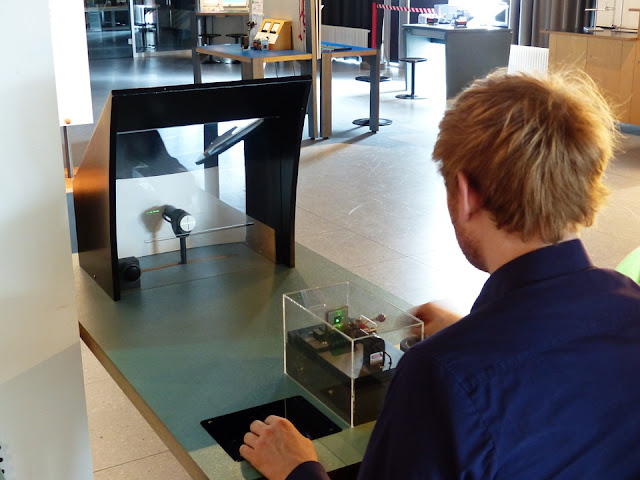To organize a project smartly, make a plan and stick to it. Here is a step wise guide for planning and executing a school/college level project.
Project idea can be derived from variety of sources, a fleeting thought, your favorite concept (which you know the best), text book concept, any numerical or theoretical problem, current science topics which are making headlines etc.. In today’s world GOOGLE is a very rich source to get good project ideas. But, you should try to resist doing it in the first place.


 After doing some trials of experimentation, you will realize what changes should be made. If you are trying to reproduce any video its quite common that you will not get desired results. So make use of this time for making most apt setup. Stability of the setup is equally important; if something goes wrong you should be able to correct it asap. Prepare a 2-3 minute speech for explaining your project. You may want to prepare two separate write-ups for scientific and non-scientific community.
After doing some trials of experimentation, you will realize what changes should be made. If you are trying to reproduce any video its quite common that you will not get desired results. So make use of this time for making most apt setup. Stability of the setup is equally important; if something goes wrong you should be able to correct it asap. Prepare a 2-3 minute speech for explaining your project. You may want to prepare two separate write-ups for scientific and non-scientific community.
 Analysis
Analysis
- Sit with a paper and pen and think about a concept which will be fun to demonstrate.
- Jot down few options, if you are working in a group then sit together and discuss you strength and weakness as a group.
- Try to choose a topic with which everyone in the group feels comfortable.
- Be creative and imaginative, but at the same time be realistic about availability of instruments and things like that.
- Once topic is decided, discuss concept behind the topic in great details.
- List out relevant keywords (it can be about the scientist who discovered it, definition, application, formulae) which will be required while explaining the demonstration to the audience.
- Have a group discussion about these keywords, it will help you during viva-vice.
Planning
After having enough knowledge about basics behind your experiment, its time for planning a timeline for project. A successful project cannot be realized without a great idea but without proper planning even a great idea will not materialize into a good project.
- Divide time available with you into 5 equal parts.
- Concept/customization/actual experimentation/analysis & report/buffer time, this buffer time is a must. It can be utilized for making last minute corrections and possible improvements in the project.
- Collect address and phone numbers of the vendors if you are in need of any scientific good.
- Divide work (purchase, printing, drawing etc.) among team members for the smooth execution of plan.
Purchase


Keep one for purchasing things that you will require. Keep a sample with you if possible. Also purchase stationary required on the same day.
Customization
 After doing some trials of experimentation, you will realize what changes should be made. If you are trying to reproduce any video its quite common that you will not get desired results. So make use of this time for making most apt setup. Stability of the setup is equally important; if something goes wrong you should be able to correct it asap. Prepare a 2-3 minute speech for explaining your project. You may want to prepare two separate write-ups for scientific and non-scientific community.
After doing some trials of experimentation, you will realize what changes should be made. If you are trying to reproduce any video its quite common that you will not get desired results. So make use of this time for making most apt setup. Stability of the setup is equally important; if something goes wrong you should be able to correct it asap. Prepare a 2-3 minute speech for explaining your project. You may want to prepare two separate write-ups for scientific and non-scientific community.
Experimentation
Set up experiment such that there is possibility of data collection. Validation of data builds more trust in the audience about the experiment. Take as many readings as possible. Take a lot of pictures of the setup from various angles. Some of them can be used later for report and poster.
 Analysis
Analysis
Analysis requires thorough knowledge of the concept behind experiment. If you have collected large amount of data, use software such as MS excel, Origin etc. for plotting graphs. Try to fit experimental data points with model equations. Extract information from the graphs and estimate error in experiment. Look out for possible sources of error in the experiment.
Report/Poster
It’s a great tool to get attention of audience, this I will discuss later in detail. For now I have found a journal article written by Ladino et. al. entitled "Resistance of Copper wire as a function of temperature. I hope this will be helpful.
Final check
Buffer time means simply keeping aim of completing project few days ahead of due date.It gives you some breathing space. Once its ready and you still have few days in hand give you more confidence about the project. Go through everything once again and check especially conceptual explanation of the experiment. Do some rehearsal and mock presentation with your group members, as a well prepared speech is halfway done. Use this time to look for any kind of improvements you can make. Search internet for finding any relevant advance application.
Make video of your experiment as well as presentation and see it several times. It will give you a visual idea about how audience will see it.




No comments:
Post a Comment